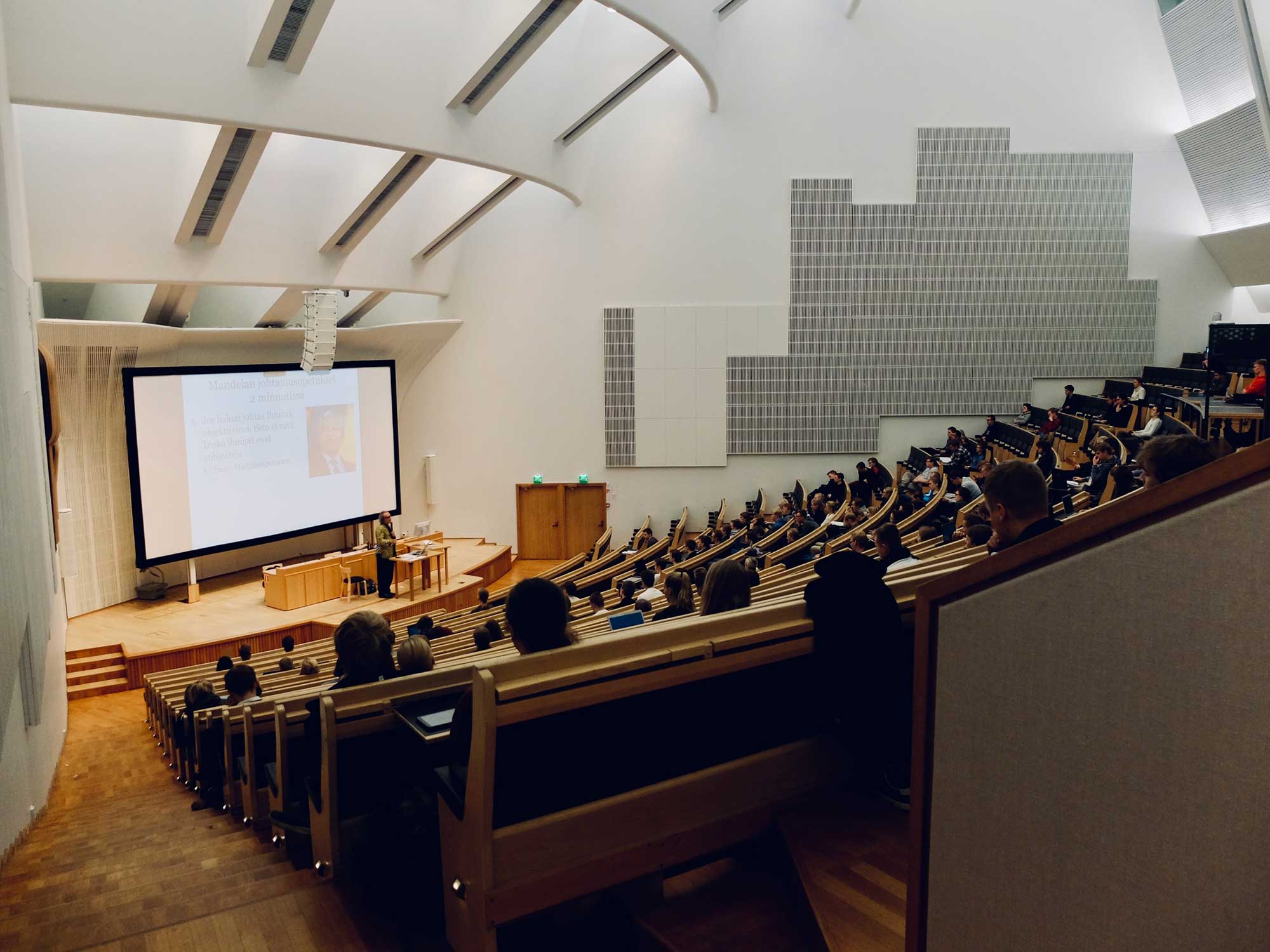Higher Education & Nonprofit Consultants
Specializing in Title III and Title V programs of the U. S. Department of Education
Each project is different. Each organization is unique.
At Marygrove Consulting, we take a holistic approach to your needs and design solutions that address your most pressing concerns. So, whether it is helping you navigate complex federal funding regulations or designing a strategic development plan, Marygrove Consulting has the experience and knowledge to move your organization forward.
We specialize in three areas:
- Grants from the Minority Serving Institutions (MSI) programs of the U.S. Department of Education
- Non-Profit management and fundraising
- Institutional Growth through Professional Development and Executive Coaching
Learn about our professional experience and explore the range of services we offer. Let us inspire you to think of new ways to serve your constituents and new sources of support.
Each project is different. Each school is unique. At Marygrove Consulting, we help you navigate the complex federal programs and regulations of Title III and Title V. With you, we design programs that have the greatest impact on your students and institution. From the beginning, we work as your partners, determining the range of possible funding under federal programs and making sure that your proposal is calibrated to the funding requirements.
We specialize in the Minority Serving Institutions (MSI) programs of the Department of Education. These grants provide direct funding to your institution to improve facilities, build academic programs, support student services and more. MSI funds are available through both formula and competitive grants under the following areas:
- Hispanic-Serving Institutions (HSI) Program
- Asian American and Native American Pacific Islander-Serving (AANAPISI) Program
- Predominantly Black Institutions (PBI) Program
- Alaska Native and Native Hawaiian-Serving Institutions (ANNH) Program
- Native American-Serving Nontribal Institutions (NASNTI) Program
Our Approach
Our approach is unique. Marygrove Consulting is with you through every step of the process from Eligibility Determination to Grant Writing to Federal Compliance. MSI programs provide $200 million a year to support the educational needs of minority students: is your institution getting its fair share?
Our Services
Institutional Insight and strategic vision...

Grant Writing and Funding Strategies for Non-Profits
We work as your partners, determining the range of possible funding under federal programs and making sure that your proposal is calibrated to the funding requirements.
Learn More
Federal Title III/V Eligibility and Grant Services
We specialize in the Minority Serving Institutions (MSI) programs of the U.S. Department of Education. These grants provide direct funding to your institution to improve facilities, build academic programs, support student services and more.
Learn More
Compliance and Project Evaluation
We work with your staff to design a comprehensive evaluation system that’s aimed at facilitating the goals and objectives stated in your grant.
Learn More
Professional Development
The Department of Education Minority Serving Institution grants present unique opportunities for faculty and staff professional development. Whether it is virtual one-on-one sessions or institution-wide on-site workshops, Marygrove Consulting provides professional development.
Learn More
Executive Coaching
Marygrove Consulting helps college and university leaders and non-profit executives improve their leadership skills.
Learn More
Interim Executive Leadership
Our "Virtual Vice Presidents" provide much-needed short-term leadership for colleges and universities.
Learn More
Services
Grant Writing and Funding Strategies for Non-Profits
We work as your partners, determining the range of possible funding under federal programs and making sure that your proposal is calibrated to the funding requirements.
Learn More
Services
Federal Title III/V Eligibility and Grant Services
We specialize in the Minority Serving Institutions (MSI) programs of the U.S. Department of Education. These grants provide direct funding to your institution to improve facilities, build academic programs, support student services and more.
Learn More
Services
Compliance and Project Evaluation
We work with your staff to design a comprehensive evaluation system that’s aimed at facilitating the goals and objectives stated in your grant.
Learn More
Services
Professional Development
The Department of Education Minority Serving Institution grants present unique opportunities for faculty and staff professional development. Whether it is virtual one-on-one sessions or institution-wide on-site workshops, Marygrove Consulting provides professional development.
Learn More
Services
Executive Coaching
Marygrove Consulting helps college and university leaders and non-profit executives improve their leadership skills.
Learn MoreGRANT WRITING
The MSI programs of the Department of Education run a variety of grant competitions that seek to improve the educational outcomes of minority students and strengthen the institutions that serve them. We have secured multi-million dollar awards for our clients and use a process that is based on the needs of the institutions we represent.
Our Approach
- We establish a relationship with you early in the process so that we understand the goals of your institution and the needs of your students.
- We walk through the grant application with you, identifying the areas of emphasis highlighted by the Department of Education.
- We work with all aspects of your organization: student services, finance, enrollment, institutional research, academic affairs and others to tailor the most effective application.
- We apply the lessons we have learned from writing and reviewing successful federal grant applications to produce a grant that matches the federal guidelines and priorities.
- We stick to deadlines and make sure that your application and all required federal filings are submitted on time.
Your grant application will accurately reflect your unique mission and vision. Goals and objectives will be developed to meet student needs and to address the areas of emphasis articulated by the Department of Education. A clear and concise implementation plan will be included in your grant application so that you have a blueprint for success.



FEDERAL COMPLIANCE EVALUATION
Congratulations. You have been awarded a grant from one of the MSI programs. You may need expert evaluation advice to help you comply with the rules and regulations attached to the grant award. Marygrove Consulting is here to help. We work with your staff to design a comprehensive evaluation system that’s aimed at facilitating the goals and objectives stated in your grant.
Our Approach
- Development of a Title III Policies and Procedures Manual tailored for your institution.
- Monitoring spending activity for compliance with US Department of Education General Administrative Regulations (EDGAR).
- Assisting the Project Director with monthly, quarterly and annual project review meetings.
- In-person and virtual meetings with project and financial leadership at your institution.
- Preparation and submission of interim, annual and final reports for the Department of Education.
Working with you, Marygrove Consulting designs an evaluation process that allows for immediate feedback to staff providing project services. Our evaluation plans are designed to keep you on track to accomplish project goals and meet all federal operation and spending requirements.
ELIGIBILITY DETERMINATION
The Department of Education conducts an annual review of IPEDS information to determine which institutions are eligible for funding. If you have not received an MSI grant, chances are that your institution is listed as “ineligible.” We can help you get off that list.
Our Approach
We begin by researching your eligibility for federal funding. With you, we review the Department of Education’s Eligibility Matrix and discuss the process for requesting an eligibility determination by the DOE. There are three basic questions that must be answered:
We can help you determine where your institution ranks and help design the best approach for becoming eligible for federal grants. We only charge you a fee if we secure a federal grant for you.


Find out What Minority Service Institution Programsare Available for Your Institution.
The Predominantly Black Institutions Formula (Part A) and Competitive (Part F) grants are designed to assist institutions that have an enrollment of undergraduate students—
- that is at least 40 percent Black American students;
- that is at least 1,000 undergraduate students;
- of which not less than 50 percent of the undergraduate students enrolled at the institution are low-income individuals or first-generation college students (as that term is defined in Section 402A(g)); and
- of which not less than 50 percent of the undergraduate students are enrolled in an educational program leading to a bachelor’s or associate’s degree that the institution is licensed to award by the State in which the institution is located;
The purpose of the Predominantly Black Institutions Competitive Grant Program is to support Predominantly Black Institutions (PBIs) to establish or strengthen programs in the following areas:
- Science, technology, engineering, or mathematics (STEM)
- Health education
- Internationalization or globalization
- Teacher preparation; or
- Improving educational outcomes of African-American males
The Predominantly Black Institutions Formula Grant are available to PBIs for the following programs:
- Academic instruction in disciplines in which Black Americans are underrepresented;
- Establishing or enhancing a program of teacher education designed to qualify students to teach in a public elementary school or secondary school in the state that shall include, as part of such program, preparation for teacher certification or licensure;
- Establishing community outreach programs that will encourage elementary school and secondary school students to develop the academic skills and the interest to pursue postsecondary education;
- Purchase, rental, or lease of scientific or laboratory equipment for educational purposes, including instructional and research purposes;
- Construction, maintenance, renovation, and improvement in classrooms, libraries, laboratories, and other instructional facilities, including the integration of computer technology into institutional facilities to create smart buildings;
- Support of faculty exchanges, faculty development, and faculty fellowships to assist in attaining advanced degrees in the field of instruction of the faculty;
- Development and improvement of academic programs;
- Purchase of library books, periodicals, and other educational materials, including telecommunications program material;
- Tutoring, counseling, and student service programs designed to improve academic success, including innovative, customized, instruction courses designed to help retain students and move the students rapidly into core courses and through program completion, which may include remedial education and English language instruction;
- Education or counseling services designed to improve the financial literacy and economic literacy of students or the students' families;
- Funds management, administrative management, and acquisition of equipment for use in strengthening funds management;
- Joint use of facilities, such as laboratories and libraries;
- Establishing or improving an endowment fund; and
- Creating or improving facilities for Internet or other distance learning technologies, including purchase or rental of telecommunications technology equipment or services.
SOURCE: Department of Education Website - www2.ed.gov
The Developing Hispanic Serving Institutions (DHSI) Program is designed to assist any institution that has an enrollment of undergraduate full-time equivalent students that is at least 25 percent Hispanic students at the end of the award year immediately preceding the date of application.
The DHSI Program provides grants to assist HSIs to expand educational opportunities for, and improve the attainment of, Hispanic students. These grants also enable HSIs to expand and enhance their academic offerings, program quality, and institutional stability. Institutions must be designated as an eligible institution of higher education in order to apply for the Title V program and must meet the program-specific requirements to be defined as an HSI.
Types of Projects
Funds may be used for activities such as: scientific or laboratory equipment for teaching; construction or renovation of instructional facilities; faculty development; purchase of educational materials; academic tutoring or counseling programs; funds and administrative management; joint use of facilities; endowment funds; distance learning academic instruction; teacher education; and student support services including innovative and customized instruction courses designed to retain students and move the students into core courses; articulation agreements and student support programs designed to facilitate the transfer of students from two-year to four-year institutions; and providing education, counseling services, and financial information designed to improve the financial and economic literacy of students and their families.
SOURCE: Department of Education Website - www2.ed.gov
This program provides grants and related assistance to Asian American and Native American Pacific Islander-serving institutions to enable such institutions to improve and expand their capacity to serve Asian Americans and Native American Pacific Islanders and low-income individuals.
There are two programs under the AANAPISI Program: The Asian American and Native American Pacific Islander-serving Institutions Program authorized by the Higher Education Opportunity Act, 2008 (HEA, Title III, Part A, Section 320; CFDA# 84.031L) as well as the Asian American and Native American Pacific Islander-serving Institutions Program originally authorized by the College Cost Reduction and Access Act of 2007 (HEA, Title III, Part F, Section 371; CFDA# 84.382B).
Types of Projects
84.031L | 84.382B |
1. Purchase, rental, or lease of scientific or laboratory equipment for educational purposes, including instructional and research purposes. | 1. Purchase, rental, or lease of scientific or laboratory equipment for educational purposes, including instructional and research purposes. |
2. Renovation and improvement in classrooms, libraries, laboratories, and other instructional facilities. | 2. Construction, maintenance, renovation, and improvement in classrooms, libraries, laboratories, and other instructional facilities, including the integration of computer technology into institutional facilities to create smart buildings. |
3. Support of faculty exchanges, and faculty development and faculty fellowships to assist in attaining advanced degrees in the faculty‘s field of instruction. | 3. Support of faculty exchanges, faculty development, and faculty fellowships to assist in attaining advanced degrees in the field of instruction of the faculty. |
4. Curriculum development and academic instruction. | 4. Development and improvement of academic programs. |
5. Purchase of library books, periodicals, microfilm, and other educational materials. | 5. Purchase of library books, periodicals, and other educational materials, including telecommunications program material. |
6. Funds and administrative management, and acquisition of equipment for use in strengthening funds management. | 6. Tutoring, counseling, and student service programs designed to improve academic success. |
7. Joint use of facilities such as laboratories and libraries. | 7. Funds management, administrative management, and acquisition of equipment for use in strengthening funds management. |
8. Academic tutoring and counseling programs and student support services. | 8. Joint use of facilities, such as laboratories and libraries. |
9. Establishing community outreach programs that will encourage elementary school and secondary school students to develop the academic skills and the interest to pursue postsecondary education. | 9. Establishing or improving a development office to strengthen or improve contributions from alumni and the private sector. |
10. Establishing or improving an endowment fund. | 10. Establishing or improving an endowment fund. |
11. Academic instruction in disciplines in which Asian Americans and Native American Pacific Islanders are underrepresented. | 11. Creating or improving facilities for Internet or other distance learning academic instruction capabilities, including purchase or rental of telecommunications technology equipment or services. |
12. Conducting research and data collection for Asian American and Native American Pacific Islander populations and subpopulations. |
|
13. Establishing partnerships with community-based organizations serving Asian Americans and Native American Pacific Islanders. |
|
14. Education or counseling services designed to improve the financial and economic literacy of students or the students’ families. |
|
SOURCE: Department of Education Website - www2.ed.gov
This program provides grants and related to assistance to eligible Alaska Native-serving institutions and Native Hawaiian-serving institutions of higher education to enable such institutions to improve and expand their capacity to serve Alaska Natives and Native Hawaiians.
- An Alaska Native-serving institution may receive a grant under these programs if, at the time of application, it has an enrollment of undergraduate students that is at least 20 percent Alaska Native students.
- A Native Hawaiian-serving institution may receive a grant under these programs if, at the time of application, it has an enrollment of undergraduate students that is at least 10 percent Native Hawaiian students.
Types of Projects
Examples of authorized activities include:
- Purchase, rental, or lease of scientific or laboratory equipment for educational purposes, including instructional and research purposes;
- Renovation and improvement in classroom, library, laboratory, and other instructional facilities;
- Support of faculty exchanges, faculty development, and faculty fellowships to assist in attaining advanced degrees in the field of instruction of the faculty;
- Curriculum development and academic instruction;
- Purchase of library books, periodicals, and other educational materials;
- Funds and administrative management, and acquisition of equipment for use in strengthening funds management;
- Joint use of facilities, such as laboratories and libraries; and
- Education or counseling services designed to improve the financial literacy and economic literacy of students or the students' families.
SOURCE: Department of Education Website - www2.ed.gov
This program provides grants and related assistance to Native American-serving, Nontribal institutions to enable such institutions to improve and expand their capacity to serve Native Americans and low-income individuals. An institution of higher education is eligible to receive funds from the amounts available under this program if such institution is a Native American-serving nontribal institution and certifies, at the time of submission, that it has an enrollment of undergraduate students that is at least 10 percent Native American.
Types of Projects
Grants awarded under this section shall be used by Native American nontribal-serving institutions to assist such institutions to plan, develop, undertake, and carry out activities to improve and expand such institutions’ capacity to serve Native Americans and low-income individuals.
Types of projects may include:
- Purchase, rental, or lease of scientific or laboratory equipment for educational purposes, including instructional and research purposes;
- Renovation and improvement in classroom, library, laboratory, and other instructional facilities;
- Support of faculty exchanges, and faculty development and faculty fellowships to assist in attaining advanced degrees in the faculty’s field of instruction;
- Curriculum development and academic instruction;
- Purchase of library books, periodicals, microfilm, and other educational materials;
- Funds and administrative management, and acquisition of equipment for use in strengthening funds management;
- Joint use of facilities such as laboratories and libraries;
- Academic tutoring and counseling programs and student support services; and
- Education or counseling services designed to improve the financial and economic literacy of students or the students’ families.
SOURCE: Department of Education Website - www2.ed.gov
